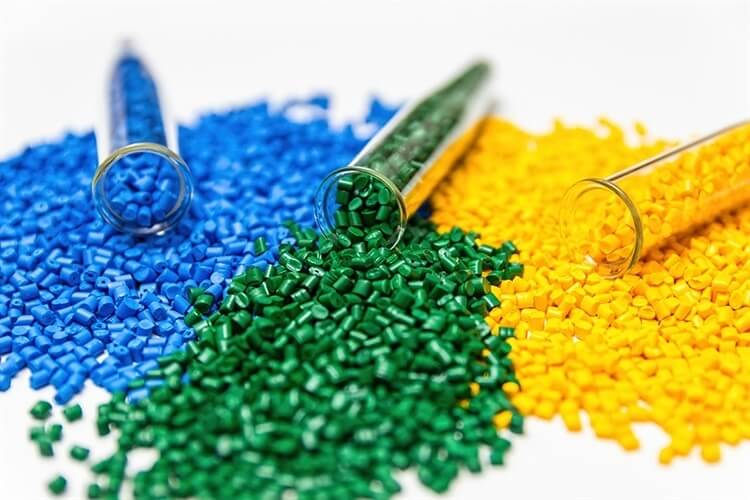Polymers in Building: Stronger, Less heavy, and More Long lasting
Polymers in Building: Stronger, Less heavy, and More Long lasting
Blog Article
Discovering the Varied Applications and Advantages of Polymers in Different Industries
Polymers, with their diverse variety of homes and capabilities, have actually come to be important in numerous sectors, each enjoying special benefits from their application. From enhancing safety and security and efficiency in the vehicle industry to reinventing clinical devices in the medical care sector, polymers play a crucial role.
Automotive Industry Applications
Polymers play a crucial duty in improving the efficiency and sturdiness of different components within the automotive sector. One noticeable usage of polymers in the auto market is in the production of lightweight parts.

Health Care Sector Advantages
In numerous healthcare applications, the benefits of using polymers are commonly identified for their diverse range of beneficial residential properties. Polymers play an essential function in the health care market as a result of their convenience, biocompatibility, and cost-effectiveness. Among the main advantages of polymers in healthcare is their capacity to be customized to details needs, such as flexibility, longevity, and biodegradability, making them ideal for a vast variety of clinical applications.
Polymer-based products are extensively made use of in medical tools, such as catheters, implants, prosthetics, and medication delivery systems, because of their biocompatibility and ability to resemble all-natural tissues. These materials can lower the risk of sensitive responses or rejections, enhancing individual safety and outcomes. Additionally, polymers are light-weight, making them ideal for wearable medical devices and guaranteeing person convenience.
Furthermore, polymers make it possible for the growth of ingenious therapy techniques, such as hydrogels for tissue engineering and nanocomposites for targeted medication delivery. Their simplicity of processing and sanitation makes them vital for keeping high requirements of health in medical care setups. On the whole, the varied advantages of polymers add considerably to innovations in medical modern technology and individual treatment.
Environmental Advantages of Polymers
:max_bytes(150000):strip_icc()/three-dimensional-model-of-polyvinyl-chloride-165874889-5c425ea7c9e77c000188be6d.jpg)
Moreover, polymers can contribute to energy financial savings due to their lightweight nature. In markets such as transport, lightweight polymer products can help in reducing fuel intake and greenhouse gas discharges. In addition, polymers can make it possible for the growth of energy-efficient items such as insulation products that enhance power conservation in structures.
In addition, polymers play a crucial function in minimizing water pollution. The usage of polymer-based filtration systems can successfully eliminate contaminants and impurities from wastewater, guarding water sources and environments. Overall, the environmental benefits of polymers make them important possessions in advertising sustainability and environment-friendly practices throughout various industries.
Polymers in Electronic Devices and Modern Technology
Thinking about the increasing demand for cutting-edge and sustainable options in modern sectors, the combination of innovative polymer modern technologies in the realm of electronics and innovation has arised as a critical method for driving performance and efficiency. Polymers have actually transformed the electronic devices industry by making it possible for the production of lighter, a lot YOURURL.com more versatile, and durable try these out digital tools. From mobile phones to clinical devices, polymers play an essential duty in boosting product layout and performance.
One significant benefit of polymers in electronics is their protecting buildings, which help safeguard fragile electronic parts from ecological variables and electric interference. In addition, polymers are necessary in the growth of flexible screens, wearable technology, and printed electronics, supplying countless opportunities for producing wise and interconnected devices.
Additionally, using polymers in electronic product packaging has caused developments in miniaturization and thermal monitoring, boosting the total efficiency and dependability of electronic systems. As modern technology continues to advance, the versatility and adaptability of polymers will most certainly drive further technology in the electronic devices market, shaping the future of innovation.
Role of Polymers in Building And Construction and Framework
The integration of innovative polymer products in construction and infrastructure tasks has transformed the means frameworks are designed and integrated in modern times. Polymers use various advantages in the construction sector because of their convenience, sturdiness, and cost-effectiveness. One essential duty of polymers in building is their use in coverings and sealers, his explanation supplying defense versus environmental elements such as wetness, UV radiation, and deterioration. In addition, polymers are utilized in the production of light-weight and high-strength composite products, improving the structural integrity of structures while reducing total weight.
In addition, polymers play a crucial function in lasting building methods by allowing the advancement of energy-efficient frameworks. Insulating products made from polymers help regulate indoor temperatures, decreasing the need for heating and cooling systems and ultimately lowering energy consumption - Polymers.
Conclusion
To conclude, polymers play an essential duty in numerous sectors such as auto, health care, environmental, electronic devices, and building and construction. Their functional residential or commercial properties make them beneficial in developing innovative services and items. From enhancing fuel efficiency in lorries to boosting medical gadgets, polymers use various advantages. In addition, their effect on decreasing waste and advertising sustainability highlights their value in modern-day applications. The widespread use polymers shows their substantial contribution to advancing technology and enhancing high quality of life.
Report this page